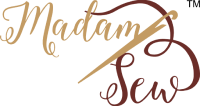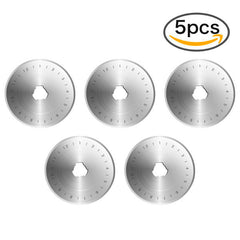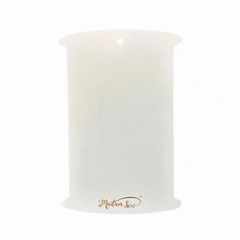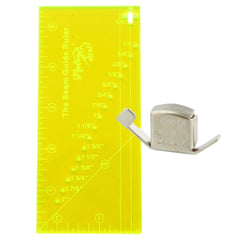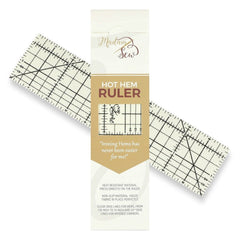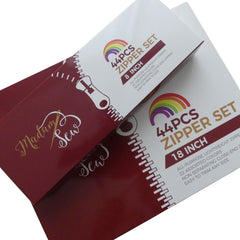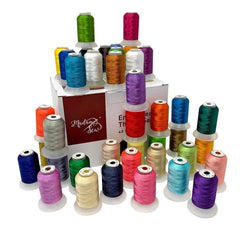Make A Teddy Bear from Old Clothes
(Free Pattern + Beginner-Friendly Guide)
Ever look at an old sweater or jeans and think, “You were once fashionable, now you’re just sentimental clutter?” Yep...Same… But before you toss it into the donation pile (again), how about turning that tired clothing into something huggable?
This DIY teddy bear tutorial isn’t just another craft project—it’s a small rebellion against waste, a love letter to your favorite fabric scraps, and a seriously adorable way to spend an afternoon. This teddy bear tutorial might not be the perfect beginner sewing project, because of the curvy seams but it isn’t difficult either. Whether you want to preserve Grandpa’s flannel in another form, turning a loved one’s old shirt into a memory bear, stitching up a sweet gift for a child or just trying to make something cute without spending a fortune at the craft store, you’re in the right place.
This upcycled stuffed animal project is low-cost, easy to make, and full of charm. With just two easy pattern pieces, a bit of sewing, and some soft stuffing (we’ve got thrifty tricks for that too), you’ll end up with a handmade bear that is about 9 inches tall and that’s equal parts squishy and sentimental. Below, you’ll find step-by-step instructions and a free download with a teddy bear pattern to print.
So grab those old clothes, fire up your sewing machine (and your playlist), and let’s give your fabric stash a glow-up. Bears, not landfill. Let’s do this!
What You'll Need
• Old jeans or an old sweater, shirt, or any soft fabric
• Stuffing (polyester fiberfill or tiny fabric scraps)
• The free teddy bear pattern from Madam Sew (linked below)
• Fabric scissors
• Fabric marker
• Needle and thread and a sewing machine
• Pins or fabric clips
• Optional: button eyes or embroidery floss to add details
Download the Free Teddy Bear Pattern
This easy pattern includes just two pieces: the front body and back body. It’s designed to be fool-proof—cut, stitch, stuff, and love!
Step-by-Step Instructions
1. Cut Your Fabric
Print and cut out the paper pattern.
Fold your fabric right sides together so you can cut two identical pieces at once. If you fold one fabric piece with the right sides together, you will get two mirrored pieces. That is what you need. If your fabric is the same on the in- and outside, it doesn’t matter how you copy the pattern on your fabric. Pin the paper pattern in place or hold it down with a fabric weight before you trace it with a fabric marker. A seam allowance of ¼ inch is included. You can also cut around the paper without marking.
After you’ve cut out the pattern pieces, you will end up with:
• two front body pieces, mirrored
• two back body pieces, mirrored
2. Sew the Front and Back Seam
Place the two front body pieces on top of each other, right sides facing. Pin or clip together. Sew from the top corner to the end of the belly where the leg starts, from star 1 to star 2 (pattern marks) with a quarter inch seam allowance.
Tip: Mark where the stars are with a pin or a little marking.
Place the two back body pieces on top of each other, right sides facing. Pin or clip together. Sew from the top corner, star 3 to star 4. Leave the seam open between star 4 and star 5 and back stitch at each start and end of a seam. The opening of 2 inches between star 4 and 5 is your turning hole. Sew the seam from star 5 and star 6 (pattern marks), which is where the leg starts.
You now have one front piece and one back piece. Cut away thread ends and press the newly sewn seams open with a hot iron or a seam roller. You can keep the seam ends pressed open with a clip.
3. Sew the Body
Place the front body piece and back body piece right sides together, match the ears, arms and legs. Pin or clip together, making sure the already sewn seams stay flat. Stitch around the edge at ¼ inch. Going around the ears and arms and legs is a little tricky so go slowly and try to sew as consistently as possible. When you lift the presser foot to turn the project a little, make sure you keep your needle down.
When you’ve sewn all around, don’t turn the project right sides out just yet. Check to make sure you haven’t gone off the path and missed a seam. Next, remove thread ends, clip corners, and add little snips in the curved seam allowances. If you skip this step, you will notice the curves will not lay properly…they won’t be flat but all bunched and pulled when turned right sides out. The inward curves need little clips, the outward curves need notches (little V-cut-outs).
4. Turn and Stuff
Turn your bear right side out. Use a pencil, chopstick or Madam Sew’s Magic Wand to poke out the limbs, ears, nose. Pushing out seams is very important to get a good result. You want them as neat, flat, unbunched as possible before you start stuffing the bear.
Use fiberfill or chopped-up fabric scraps for a sustainable option.
1. Start by filling the ears with a tiny bit of stuffing. I used fiberfill for the ears.
2. Topstitch the ears closed. You can use the marks on the pattern for reference.
3. Fill the arms and legs.
4. Topstitch the arms and legs closed using the mark lines of the pattern. Draw them with a fabric marker on the denim.
5. Stuff the rest of the body: head, chest, belly, butt
If you want the teddy to be soft and flexible, don’t use too much stuffing.
5. Close the Opening
Hand stitch the opening closed with a ladder stitch. With a ladder stitch you can hide the stitches in the seam and make them invisible, which is a perfect way to close a turning hole.
6. Add Face Elements (Optional)
You can embroider eyes, a nose, and mouth with black embroidery floss. That is the safest option if you are making this teddy bear for a child. Of course, you can also use buttons, felt pieces or real teddy bear eyes and noses. But know that these can be unsafe for babies and toddlers.
Tips for Success
• Sweaters and knits make soft, cuddly bears and are forgiving to sew.
• Mix fabric pieces for a patchwork look.
• For a memory bear, use clothing from a loved one—like a baby onesie or grandparent’s shirt.
Related Scrappy Projects You’ll Love:
A Handmade Teddy Bear is More Than Just a Toy !
It’s a treasure!
And just like that, you’ve made your own teddy bear from scratch—no fancy tools or expensive materials needed. Whether it's for a gift, a keepsake, or just a fun weekend project, your bear carries more than stitches: it holds memories, care, and creativity.
Don’t forget to share your finished bear with us using #DIYMemoryBear on social media, and pin this project for later!
An
Blogging for Madam Sew
Download the PDF of the Teddy Bear Tutorial here
Download the Pattern of the Teddy Bear Tutorial here



